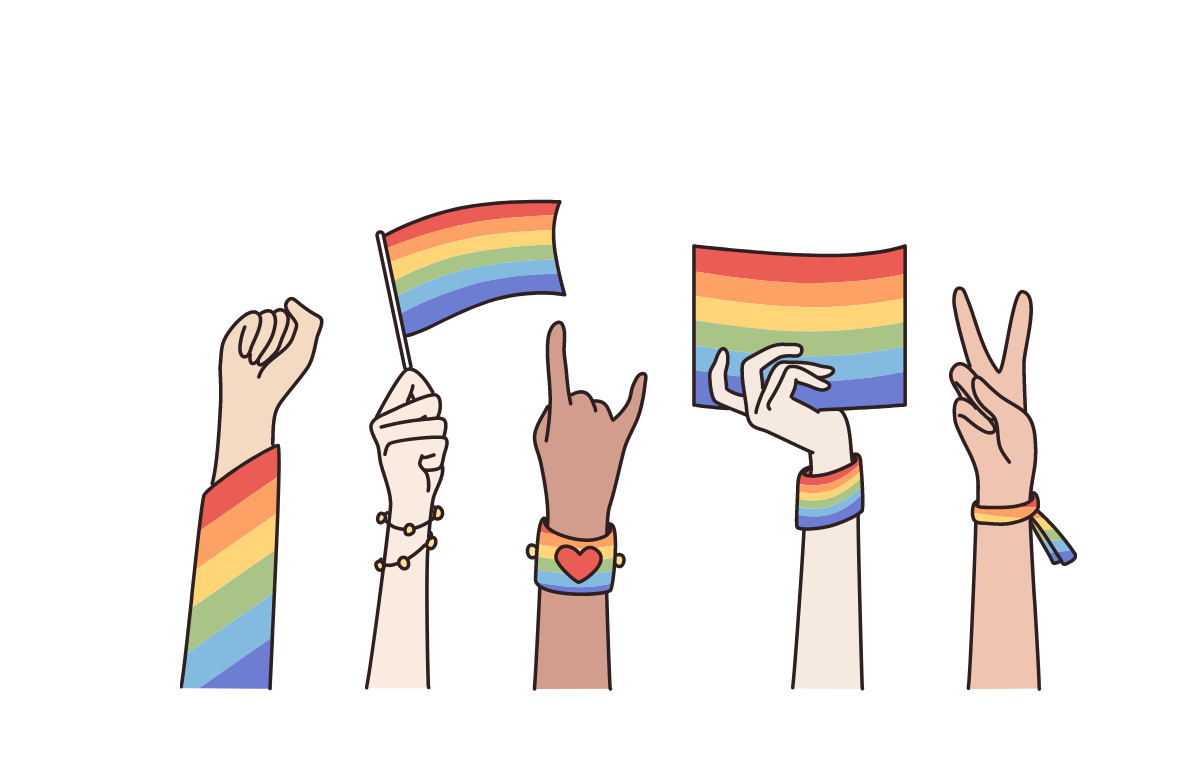
Happy LGBTQ+ Pride Month! My name is Liam Kunizo Daly and I am Robin’s Brand and Marketing Manager. My pronouns are he/they and I identify as queer (read more about pronouns here).
Growing up, being different was never talked about as a positive thing. If you didn’t fit into the appropriate boxes set before you, if you found yourself unable to “fit in”, you felt like you didn’t belong.
In many ways, things have gotten better for LGBTQ+ students and those who find themselves to be “different”. But at the same time, there is a very real political, legal and social movement against queer (used as an umbrella term for the LGBTQ+ community) youth and those that advocate for them. There is unfortunately only so much in our control when it comes to these bigoted and hateful forces at work.
As educators and allies, one way we can make a tangible difference is through Social Emotional Learning. We can help queer kids and adolescents build life skills to better handle the challenges they, and their peers, will inevitably face. These include developing a stronger sense of self, learning how to celebrate what makes them different, deepening connections to their identities, and fostering an empowered and accepting school culture and community around these values.
Developing a Stronger Sense of Self + Celebrating Difference
Our teenage years are extremely formative, awkward, and uncomfortable. Teens are learning new things about themselves every day, and with all that change comes a lot of fear, uncertainty and self-consciousness. Everyone wants to fit in with the norm, but in reality, no one really feels comfortable with who they are yet.
LGBTQ+ students, whether or not they are out to themselves or their peers, have an even more challenging time coming to terms with who they are as they realize that they can’t meet the impossible and toxic standards society has set for gender, sexuality and beyond.
One way to help them and their peers develop a stronger sense of self and higher self esteem is to reframe the mindset around what is “normal”; in actuality, no one is “normal”, it’s a myth. We’re all different, and that needs to be taught and celebrated in order to remove the shame associated with feeling that way. As Robin Coach Nyeesha Williams advocates, helping students find their inner superpowers and teaching them how to value and love what makes them unique and special is a very powerful means of fostering growth in the journey toward self-love and acceptance.
Deepening Connection to Identities
The next step toward acceptance is educating your students about the various identities that come together to form their beautiful selves and demonstrating the importance of finding a safe, empowering space to explore those identities. It can at times feel intimidating and overwhelming to keep track of all the terms that make up the LGBTQ+ acronym. As an educator, you already have so much going on, so many things to keep track of and remember. But even just taking a little bit of time to read more about these identities and terms and talking about them with your students can make a huge difference. Remember: you don’t need to know everything; it is extremely valid to answer a student’s question with “I’m not sure, why don’t we find out together.”
The most important thing is for your students to know they’re in a safe, non-judgmental space. They need to know that however they identify, they are valid and beautiful.
At the same time, they might not know how they identify, and that’s just as valid. Identity is so much more complex and expansive than fitting into tight boxes. As Robin Coach Felicia Tomasko says “It’s okay to exist in that space between the boxes.” Understanding some of the terms out there can allow students to discover in their own time and in their own way what feels right for them, rather than what was initially prescribed to them at birth. Something as simple as putting your pronouns under your name tag or placing a rainbow sticker on your wall can make all the difference for a young person who isn’t sure who they’re attracted to or how they feel about their gender.
Fostering an Accepting School Culture
By celebrating your students’ differences, educating them about various identities and fostering a safe space, what you are doing is building a healthy environment for empathy to grow. According to Robin Coach Greg Van Kirk, understanding what other people are going through by relating to them and connecting over shared experiences is what activates empathy. At this point, your students know that each one of them has felt uncertain and different at one point or another. You’ve taught them that this is not only okay but it’s also a beautiful part of life; that uncertainty can lead to meaningful self-discovery.
This shared understanding marks the beginning of fostering a more accepting, empowering and inclusive school culture that is grounded in empathy for one another.
LGBTQ+ Pride Month is the perfect opportunity to start the conversation around what it means to be queer and why different is beautiful. But using Social Emotional Learning to build life skills and empower your students throughout the year is what will make a lasting impact on your school community. Let’s connect to see how Robin can help support you, your students and their families.
About the Coach

Liam Daly.
Liam has been passionate about mental health for the past decade. As a young adult who struggled with anxiety and depression in middle and high school, he lives for the Robin mission to help students face the challenges that come with each day. A Northeastern graduate, he has experience in brand strategy, content marketing and market research.
Meet Liam